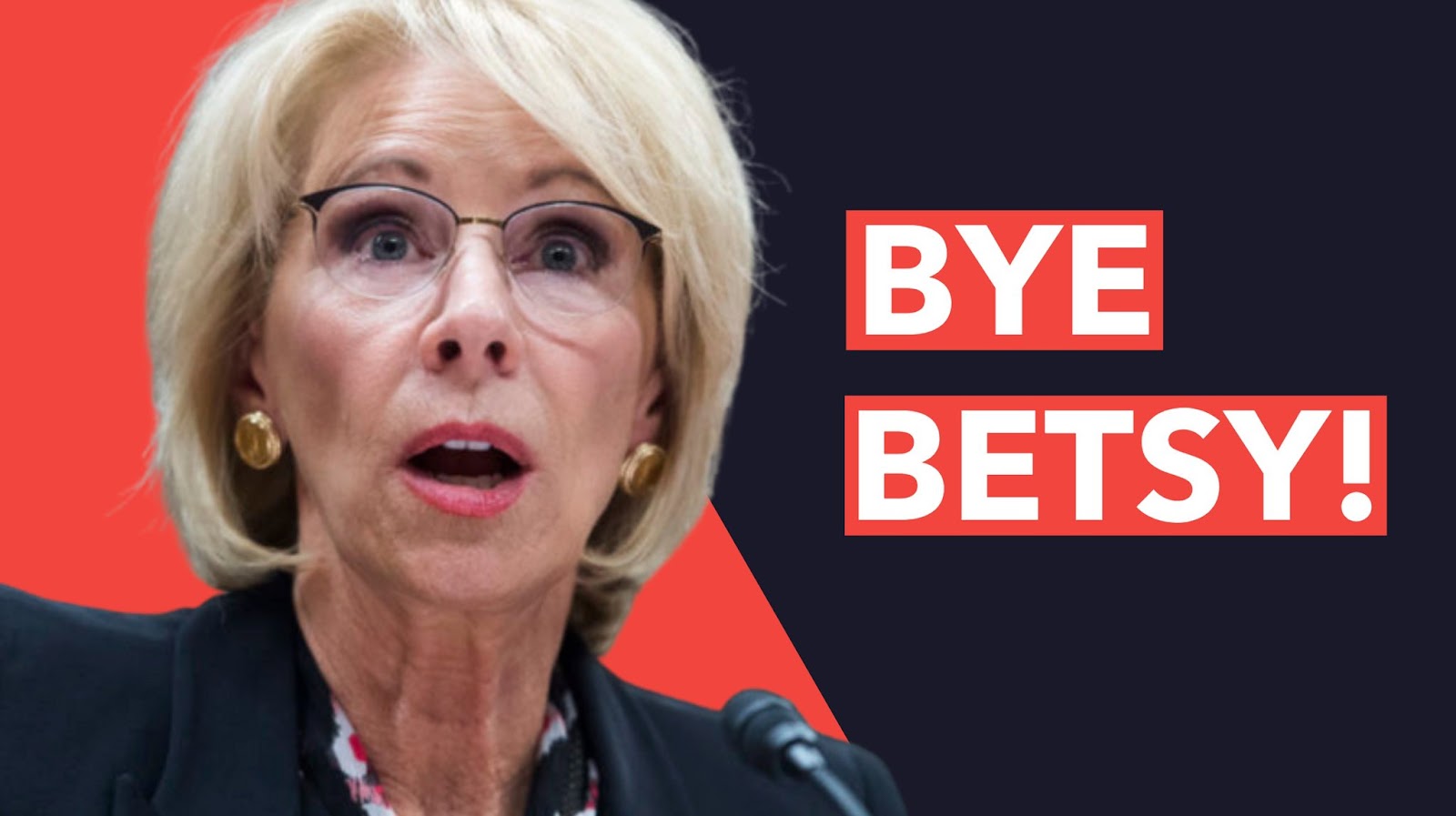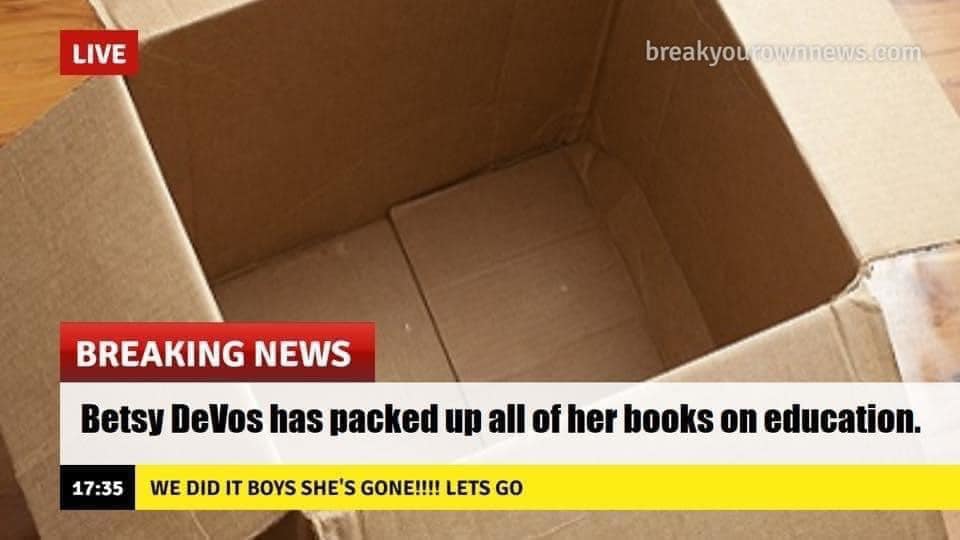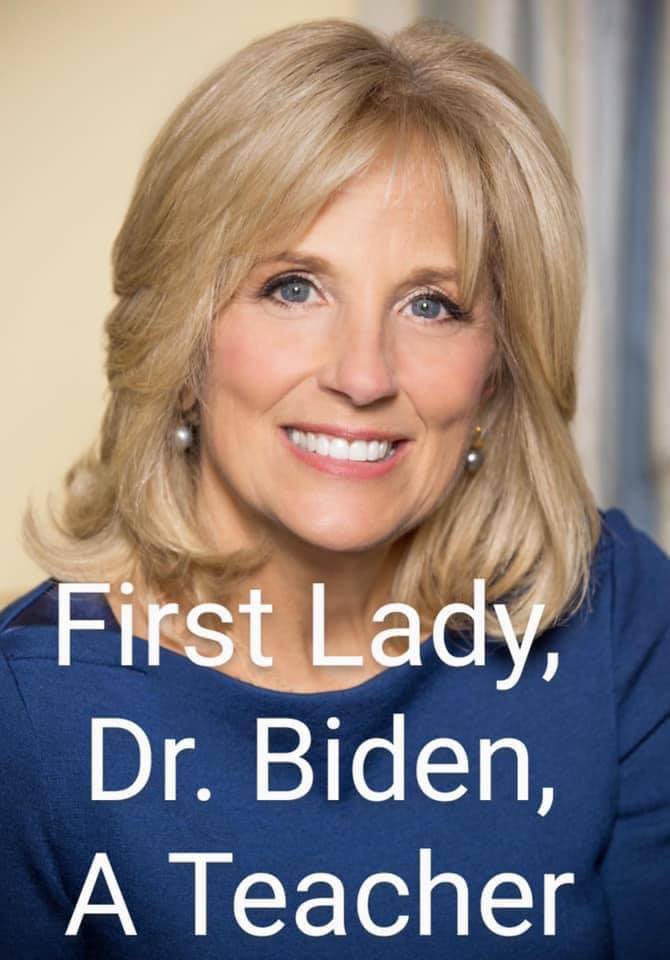|
One of our Own
Last Saturday, on November 7th, the majority of news outlets following the election polls called the 2020 election for Joe Biden as the 46th elected President of the United States of America. And while educators may have been divided over the outcome of the election, there seemed to be a common chorus coming from teacher groups across the nation.

Betsy Devos, who served as the Secretary of Education, was consistently ranked as President Trump’s most unpopular Cabinet Secretary. Unfortunately, she was also one of the few who never got fired, making her tenure as SoE one of the longest. Her goal of dismantling public education through the use of corporate capitalism was met with constant resistance from educators across the system.

One of the reasons Betsy came under constant scrutiny from the education field was because of her lack of experience in a school setting. Devos was never a teacher, never worked in a school position, and visited very few schools in her time as SoE. In the last year of the pandemic, Devos used her political agenda to pressure schools to open full time, and then used the resistance from that decision to push for school choice options that allow federal, public funds to be used in charter and private schools, without accountability.

On November 7th, for the first time in a long time, educators heard an encouraging message involving public schools. President-Elect Joe Biden said, “Jill’s a military mom, an educator. She’s dedicated her life to education, but teaching isn’t just what she does. It’s who she is. For American educators, this is a great day for you all. You are going to have one of your own in the White House.” [emphasis added]
Whether Dr. Biden will have as much influence on education policy as has been anticipated will remain in question. But I can’t help but think of the relationship I have with my own spouse, and hope. My husband works in another social sector of agriculture. Our jobs are very different, and yet, over the course of our marriage we have found many common threads.
After long days of teaching, I would come home and share my heart with him for my students; sometimes joyful, sometimes in sorrow. He has laughed with me at the jokes my students have told, and held my hand as I cried for the students that I lost. He listened as I told him how frustrated I was with the systemic injustices found in education, and vowed to help me find a way to help. Through those many conversations, he noticed how his work changed, how he began to humanize the people he was working with, to open doors for more people, to disrupt injustices head on.
I’ll never forget the time we were with some friends who were championing school choice being open to all students because of the positive experiences they had with their own children. We listened quietly as several people advocated for the lack of accountability in school funding. During that conversation, he caught my eye, gave me a side smirk, and a wink. He knew I was ready to dismantle that entire conversation. And when the pause in conversation came, I didn’t hear my voice first. I heard his. “Well, actually…”
And then, I listened to the spouse of an educator speak to the alternative side of school choice with facts, statistics, and known injustices as if he had spent years studying. And in fact, he had. He not only listened to me, watched series with me like “America To Me”, but he took to researching so he was knowledgeable on his own.
I remember riding home that night and asking him how he knew all that stuff about education. His response was, “Well, I guess when you’re married to an educator, you realize how important education really is, and it moves you.”
This is my prayer for President-Elect Joe Biden. I hope that Biden himself has been moved by Dr. Jill Biden, simply by listening to her stories about teaching, to her frustrations with the system, and to her heart as an educator. I hope he goes home after hard days to hear her stories, and to remember why he needs to fight hard for teachers, students, and public schools. I hope he remembers he has someone who has done the work in the White House with him. And I hope that Biden’s administration and work in education policy show a direct link back to his being married to an educator, that he would see just how important education really is.
She doesn’t have to be the next Secretary of Education for that hope to exist. She can simply be Dr. Jill Biden, married to Joe Biden, President-Elect of the United States of America.

Lauren Baucom
@Lbmathemagician
|